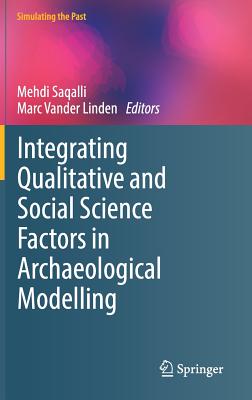Perspectives on Socio-Environmental Transformations in Ancient Europe
Müller, Johannes, Kirleis, Wiebke, Taylor, Nicole
- 出版商: Springer
- 出版日期: 2024-02-28
- 售價: $2,580
- 貴賓價: 9.5 折 $2,451
- 語言: 英文
- 頁數: 367
- 裝訂: Hardcover - also called cloth, retail trade, or trade
- ISBN: 3031533135
- ISBN-13: 9783031533136
海外代購書籍(需單獨結帳)
商品描述
This open access book brings together key issues from transformative processes and events across Europe (and in some cases beyond) from 15,000 to 1 BCE. This volume covers the research output produced by the Collaborative Research Centre (CRC) 1266 "Scales of Transformation" - the first interdisciplinary centre to diachronically investigate transformations in past societies with a summary of their individual aspects from the Late Palaeolithic to the Roman Period.
Following the introduction, the book is divided into three main sections: In "Identification of anatomies of socio-environmental transformation", the concept of scales of transformations is first explained, and the various parameters of transformational change are identified. This is followed by "Expressions of socio-environmental transformations: from climate preconditions to decision making", in which transformation processes are illustrated with individual examples. The third major part of the book deals with "Perspectives on decision making processes in socio-environmental transformations". In conclusion, the results are framed in a broad temporal framework, and patterns of socio-environmental change are presented across common time frames from the Eastern Mediterranean to Scandinavia. This book is of interest to researchers in archaeology and palaeoecology.
作者簡介
Wiebke Kirleis is Professor of Environmental Archaeology/Archaeobotany at the Institute for Prehistoric and Protohistoric Archaeology at Kiel University, Germany. She is deputy speaker of the Collaborative Research Centre 'Scales of Transformation: Human-Environmental Interaction in Prehistoric and Archaic Societies' and member of the Cluster of Excellence 'ROOTS'. As an archaeobotanist, she is interested in all kinds of plant-related human activities, be they subsistence strategies or food processing, with their socio-cultural implications, as well as the reconstruction of human-environment interactions in the past. Geographically, her research areas span from northern Europe all way to Indonesia.
Nicole Taylor is one of the Scientific Coordinators of the Collaborative Research Centre (CRC) 1266 "Scales of Transformation". An archaeologist by training, she received her doctorate as a Marie Curie Fellow in the EU project "Forging Identities: The Mobility of Culture in Bronze Age Europe". Her research has focused on the European Bronze Age, primarily in Central Europe, with foci on settlement archaeology and questions on prehistoric identities through the combination of social and isotopic analyses.










